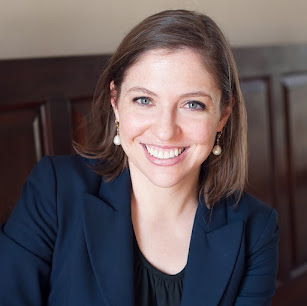Time Transport: If transported from their time to now, describe how you feel the founding fathers in your book would view our current political climate. COVID Cabinet: How would each of the primary players have responded to the Coronavirus?
What great questions! I think President George Washington, Secretary of the Treasury Alexander Hamilton, Secretary of State Thomas Jefferson, Secretary of War Henry Knox, and Attorney Edmund Randolph would be so confused by the world in general. Everything from telephones to airplanes to Zoom would blow their minds. They would be thrilled that the nation had survived, because every other republic in history had failed. They would also be relieved that the nation had abolished slavery, even if it took fighting a civil war, because they feared it would tear the nation apart.
That being said, they would be gravely concerned about the current status of the nation. Certain characters like George Washington and Edmund Randolph abhorred partisan factions more than others. Alexander Hamilton and Thomas Jefferson were more willing to engage in political warfare through party building and newspaper editorials.
But they all agreed that the nation should be led by “the best men.” They all believed that leaders should be well-educated, principled, devoted to the nation, and experienced—they should not be in office to benefit themselves, but because they felt called to service. The concept of a demagogue or corrupt politician who served to line his pockets would outrage them. For example, in Federalist 1, Alexander Hamilton wrote,
“A dangerous ambition more often lurks behind the specious mask of zeal for the rights of the people, than under the forbidding appearance of zeal for the firmness and efficiency of government. History will teach us, that the former has been found a much more certain road to the introduction of despotism, than the latter, and that of those men who have overturned the liberties of republics the greatest number have begun their carreer, by paying an obsequious court to the people, commencing Demagogues and ending Tyrants.”
Essentially, he was saying that demagogues who proclaim to be defending individual rights tend to lead to despotism far more than strong governments that are managed efficiently.
That being said, they did agree that unified national action was required in certain circumstances. They knew that thirteen states couldn’t negotiate thirteen separate foreign policies with European nations, nor could the states operate independent economic policies, otherwise they would tax each other. Washington’s cabinet would have agreed that some sort of national action was necessary to prevent the spread of COVID-19, but they probably would have disagreed about the right course of action.
In 1793, a Yellow Fever outbreak hit Philadelphia and they advocated different responses. Hamilton preferred a ban on all visitors or immigrants that appeared sick to prevent the spread of the disease, while Jefferson believed that reforms to the city were necessary to prevent disease from growing in poor, unsanitary conditions. In that case, they were both right. Yellow Fever is spread by mosquito, so the disease likely first came to American shores from an infected person in the Caribbean, or perhaps New Orleans. Once that person was bitten by a mosquito, the mosquito then bred and carried it to other residents. So quarantine measures of sick travelers would have helped prevent the disease in the first place. But cleaning up the docks and other pools of standing water and refuse in the city would have prevented further mosquito growth.
I imagine they would have advocated similar approaches in 2020. Hamilton would have been worried about travelers carrying the disease, while Jefferson would have advocated people leave cities and return to the “healthful airs” in the countryside where the population was less dense.
For all that Hamilton and Jefferson disagreed—and they disagreed on pretty much everything—they both would have been adamant that inaction was inexcusable.
Lindsay M. Chervinsky, Ph.D. a historian of Early America, the presidency, and the government – especially the president’s cabinet. She shares her research by writing everything from op-eds to books, speaking on podcasts and other media, and teaching every kind of audience. She is Scholar-in-Residence at the Institute for Thomas Paine Studies and Senior Fellow at the International Center for Jefferson Studies. Previously, she worked as a historian at the White House Historical Association. She received her B.A. in history and political science from the George Washington University and her M.A. and Ph.D. from the University of California, Davis. She has been featured in the Law and History Review, the Journal of the Early Republic, TIME, and the Washington Post. Her new book, The Cabinet: George Washington and the Creation of an American Institution, was published by the Belknap Imprint of Harvard University Press on April 7, 2020.
The New Criterion recently said of her book, “Fantastic…Unlike many works of popular history, The Cabinet never feels like hagiography. It lacks the reverence of works like Joseph J. Ellis’ Founder Brothers or the revisionist obsequiousness that now greets Alexander Hamilton’s name on stage…Chervinsky exemplifies the public-history ethos in her new book. The writing is clear and concise…She takes what could have been a dry institutional and political history of the Early Republic and transforms it into a compelling story of people and places.”
When she isn’t writing, researching, or talking about history, she can be found hiking with her husband and American Foxhound, John Quincy Dog Adams (Quincy for short).




Great post, thank you.
ReplyDeleteThanks so much for hosting!
ReplyDeleteThis is how I love to read history.
ReplyDeleteThanks for hosting!
ReplyDeleteCongrats on this tour and thanks for the opportunity to read about another great book out there to read. It helps out so I can find books I know my family will enjoy reading. Thanks as well for the giveaway.
ReplyDeleteEnjoyed the post.
ReplyDelete